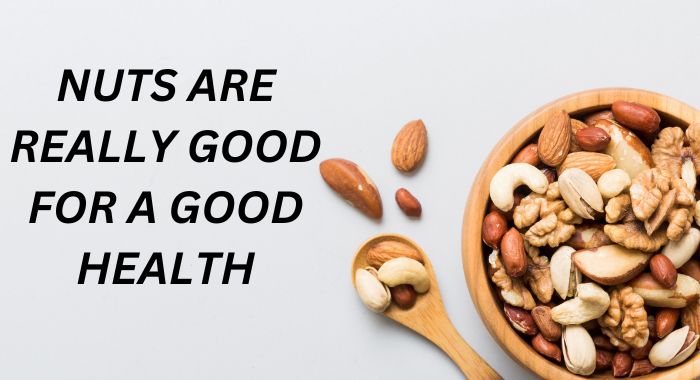Importance of Vitamins maintaining overall health and supporting the body’s important functions. Vitamins help us in different ways in our body for our healthy life. Here’s why vitamins are so important in our lives:
Types of vitamins and Importance of Vitamins
There are many types and importance of vitamins available in different things.

Vitamin A:
Vitamin A function as it supports vision, immune function, and skin health.
Sources:
Sources of Vitamin A to have in your meal.
- Animal-based: Liver, eggs, dairy products
- Plant-based: Carrots, sweet potatoes, spinach, red bell peppers, apricots.
Importance Of Vitamin B1:
Importance of Vitamin B1 is important as it supports energy production and nerve function.
Sources:
Sources of Vitamin B1 to have in your meal.
- Whole grains (brown rice, oats, whole wheat bread)
- Pork, fish, and poultry
- Legumes (beans, lentils)
- Nuts and seeds
Vitamin B2:
Vitamin B2 function as it helps convert food into energy, supports healthy skin and eyes.
Sources:
Sources of Vitamin B2 to have in your meal.
- Dairy products (milk, yogurt, cheese)
- Eggs
- Leafy green vegetables (spinach, broccoli)
Vitamin B3:
Vitamin B3 functions as it helps convert food into energy, supports skin, digestive, and nerve health.
Sources:
Sources of Vitamin B3 to have in your meal.
- Meat (poultry, fish)
- Whole grains (brown rice, oats)
- Legumes (beans, lentils)
- Nuts and seeds
Vitamin B5:
Vitamin B5 functions as it supports metabolism and synthesis of hormones.
Sources:
Sources of Vitamin B5 to have in your meal.
- Avocados
- Chicken, turkey
- Eggs
- Whole grains
- Mushrooms, sweet potatoes
Importance Of Vitamin B6:
Importance of Vitamin B6 is important as it supports brain function, nerve health, and hormone regulation.
Sources:
Sources of Vitamin B6 to have in your meal.
- Poultry (chicken, turkey)
- Fish (salmon, tuna)
- Potatoes, sweet potatoes
- Bananas
- Chickpeas, fortified cereals
Vitamin B7:
Vitamin B7 functions as it is a key for healthy hair, skin, nails, and supports metabolism.
Sources:
Sources of Vitamin B7 to have in your meal.
- Eggs (especially egg yolks)
- Nuts and seeds (almonds, peanuts)
- Legumes (beans, lentils)
- Whole grains
- Sweet potatoes
Vitamin B9:
Vitamin B9 functions as it is important for DNA synthesis, cell growth, and preventing birth defects.
Sources:
Sources of Vitamin B9 to have in your meal.
- Leafy greens (spinach, kale)
- Legumes (beans, peas, and lentils)
- Citrus fruits
- Avocados
- Fortified cereals and bread
Vitamin B12:
Vitamin B12 function as it helps with red blood cell production, brain health, and nerve function.
Sources:
Sources of Vitamin B12 to have in your meal.
- Animal products (meat, poultry, fish, eggs, dairy)
- Fortified plant-based milks (almond, soy)
- Fortified cereals
- Nutritional yeast (for vegetarians/vegans)
Vitamin C:
Vitamin C function as it boosts the immune system, helps collagen formation, acts as an antioxidant.
Sources:
Sources of Vitamin C to have in your meal.
- Citrus fruits (oranges, lemons, grapefruits)
- Berries (strawberries, raspberries, blueberries)
- Bell peppers (especially red), tomatoes
- Broccoli, Brussels sprouts, kiwi, spinach
Vitamin D:
Vitamin D function as it helps with calcium absorption for bone health and supports the immune system.
Sources:
Sources of Vitamin D to have in your meal.
- Sunlight (your skin produces Vitamin D when exposed to the sun)
- Food sources: Fatty fish (salmon, mackerel, sardines), fortified milk, fortified cereals, egg yolks, mushrooms (especially when exposed to sunlight)
Vitamin E:
Vitamin E functions as it acts as an antioxidant, protects cells from damage, and supports skin health.

Sources:
Sources of Vitamin E to have in your meal.
- Nuts and seeds (almonds, sunflower seeds)
- Vegetable oils (sunflower, safflower, olive oil)
- Spinach, broccoli, and other leafy greens
- Avocados
Vitamin K:
Vitamin K functions as it is important for blood clotting and bone health.
Sources:
Sources of Vitamin K to have in your meal.
- Leafy greens (kale, spinach, broccoli, collard greens)
- Cabbage, Brussels sprouts
- Fish, meat, and eggs (smaller amounts)
Importance OF VITAMINS
1. Supporting Immune Function
Importance of Vitamins like Vitamin C and Vitamin D are key for boosting the immune system, helping the body fight off infections and diseases. Vitamin C is a powerful antioxidant, while Vitamin D supports immune response and reduces the risk of chronic diseases.
2. Promoting Healthy Skin, Hair, and Nails
Vitamin A and Vitamin E contribute to healthy skin by preventing dryness, acne, and premature aging. Vitamin A also supports cell growth, and Vitamin E acts as an antioxidant that protects skin from sun damage.
3. Strengthening Bones and Teeth
Vitamin D helps the body absorb calcium, a key mineral for bone strength and dental health. A deficiency in Vitamin D can lead to weakened bones, increasing the risk of fractures and conditions like osteoporosis.
4. Supporting Vision Health
Vitamin A is essential for good vision. It helps maintain healthy cells in the eyes and protects against age-related vision issues, like macular degeneration. It also plays a role in preventing night blindness.
5. Energy Production
B vitamins (like B12, B6, and folate) are crucial in energy production. They help convert the food we eat into usable energy, ensuring our cells function properly. They also support nerve health and improve cognitive function.
6. Reducing the Risk of Chronic Diseases
Antioxidants such as Vitamin C, Vitamin E, and Vitamin A help protect cells from damage caused by free radicals. This, in turn, reduces the risk of chronic diseases like heart disease, cancer, and diabetes.
7. Promoting Healthy Metabolism
Importance of Vitamins like Vitamin B1 (Thiamine), B2 (Riboflavin), and B3 (Niacin) are involved in the breakdown of carbohydrates, proteins, and fats to produce energy. These vitamins help maintain a healthy metabolism and energy balance.
8. Improving Brain Function
Vitamin B6, Vitamin B12, and folate are vital for brain health, supporting cognitive function, and preventing memory loss. They help in adapting neurotransmitters, ensuring perfect brain function and mental clarity.
9. Enhancing Blood Health
Vitamin K is important for blood clotting and preventing extreme bleeding. Folate and Vitamin B12 are key in the production of healthy red blood cells, preventing anemia and ensuring proper oxygen circulation in the body.
10. Maintaining Healthy Digestion
Some vitamins, such as Vitamin B1 (Thiamine) and Vitamin B3 (Niacin), play an important role in supporting the digestive system by promoting the proper function of enzymes and the gastrointestinal tract.
(Reminder: If you are allergic to any food, any vitamin-rich food, or any of the vitamin-rich foods mentioned above, then don’t eat that food.)
Note: If you want to know about the importance of nuts, visit this blog.







Leave a Reply